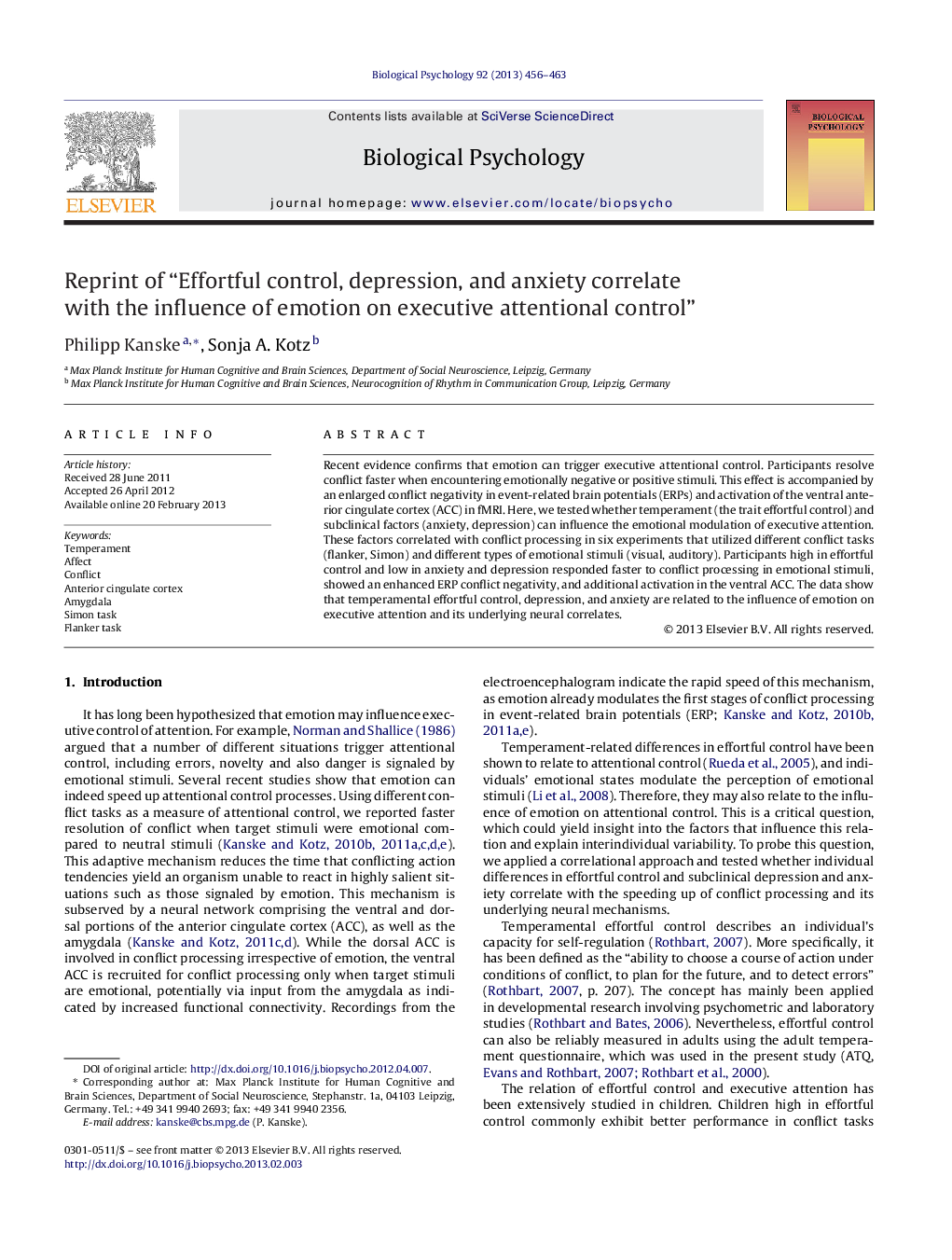| Article ID | Journal | Published Year | Pages | File Type |
|---|---|---|---|---|
| 921013 | Biological Psychology | 2013 | 8 Pages |
Recent evidence confirms that emotion can trigger executive attentional control. Participants resolve conflict faster when encountering emotionally negative or positive stimuli. This effect is accompanied by an enlarged conflict negativity in event-related brain potentials (ERPs) and activation of the ventral anterior cingulate cortex (ACC) in fMRI. Here, we tested whether temperament (the trait effortful control) and subclinical factors (anxiety, depression) can influence the emotional modulation of executive attention. These factors correlated with conflict processing in six experiments that utilized different conflict tasks (flanker, Simon) and different types of emotional stimuli (visual, auditory). Participants high in effortful control and low in anxiety and depression responded faster to conflict processing in emotional stimuli, showed an enhanced ERP conflict negativity, and additional activation in the ventral ACC. The data show that temperamental effortful control, depression, and anxiety are related to the influence of emotion on executive attention and its underlying neural correlates.
► We measured individual temperamental effortful control, anxiety, and depression. ► These correlated with the emotional modulation of executive attention. ► The underlying neural mechanisms were also subject to individual variations. ► The correlational pattern was consistent across six different experiments.
